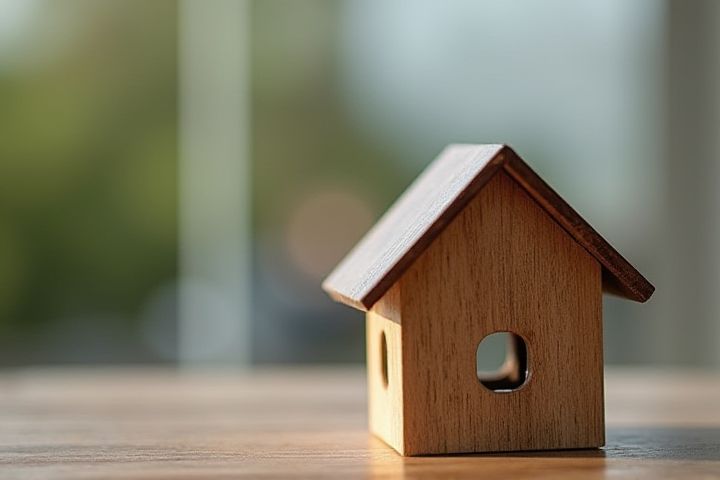
A house may not sell quickly due to various factors, including its pricing strategy, condition, and location. Overpricing the property compared to similar homes in the area can deter potential buyers. The condition of the house, whether it requires significant repairs or updates, can also influence buyer interest. Furthermore, a less desirable location, such as high crime rates or poor school districts, may limit the market appeal. Your marketing strategy, including the quality of photos and online listings, plays a crucial role in attracting buyers as well.
Why A House May Not Sell Quickly
Overpricing
Overpricing is a primary reason a house may linger on the market longer than anticipated, often deterring potential buyers. Homes priced above comparable properties in the neighborhood can create a perception of diminished value, leading to fewer showings and offers. You might hesitate to negotiate if your listing price is significantly higher than the market average, causing your property to become overlooked. Accurate pricing, based on a thorough market analysis, is crucial in attracting buyer interest and ensuring a timely sale.
Poor curb appeal
Poor curb appeal can significantly hinder the sale of a house, as first impressions are crucial in real estate. Buyers often make snap judgments based on the exterior aesthetics, which include landscaping, paint condition, and overall cleanliness. If your home appears neglected or unattractive from the street, potential buyers may dismiss it without even stepping inside. Improving curb appeal through simple updates like fresh paint, well-maintained landscaping, and tidy entryways can enhance your property's attractiveness and speed up the selling process.
Ineffective marketing
Ineffective marketing can significantly delay a house sale, as potential buyers may not even be aware that your property is on the market. Poor-quality photos, vague descriptions, and minimal online visibility can limit interest, leading to longer listing durations. Without utilizing targeted advertising strategies or engaging staging techniques, you risk attracting only a small pool of buyers, reducing the chances of a quick sale. To improve your chances, consider investing in professional photography and enhancing your online presence across popular real estate platforms.
Tough competition
In a saturated real estate market, tough competition can significantly hinder the sale of your house. When there are numerous comparable homes listed in your area, buyers have a plethora of options, often leading to price wars and extended negotiations. Properties that lack unique features or are priced higher than similar homes may struggle to attract potential buyers, resulting in longer listing times. To stand out, homeowners should consider enhancing curb appeal or investing in minor renovations, helping to position their property favorably amidst fierce competition.
Unfavorable location
An unfavorable location significantly impacts a house's marketability, with properties situated near busy roads or industrial areas often experiencing longer selling times. Houses in areas with limited access to essential amenities, such as schools, grocery stores, and public transportation, can deter potential buyers. Furthermore, homes in neighborhoods with high crime rates or a lack of community safety may struggle to attract interest, even if the property itself is well-maintained. Pricing can also be affected, as you may need to reduce your asking price significantly to compensate for the less desirable location.
Necessary repairs
A house may struggle to sell quickly if it requires significant repairs, as potential buyers often prioritize move-in readiness. For instance, issues such as leaking roofs, outdated electrical systems, or plumbing problems can reduce market appeal, potentially lowering its value by 10-15%. Home inspections frequently reveal these types of repairs, which can deter buyers or lead to negotiation pitfalls. Investing in essential repairs before listing your property can significantly enhance its attractiveness and reduce time on the market.
Unappealing interior
An unappealing interior can significantly hinder a house's marketability, as potential buyers often prioritize visually attractive spaces. Dated designs, unattractive color schemes, and excessive clutter can create a negative first impression, making it difficult for your property to stand out. Additionally, poorly maintained features, such as worn-out flooring or stained walls, can suggest to buyers that they will face additional renovation costs. Investing in updates or staging your home's interior can enhance its appeal and help it sell more rapidly.
Inflexible showing schedule
An inflexible showing schedule can significantly hinder the sale of a house, as potential buyers often require convenient access to view a property. If your listing is only available for showings during limited hours, you may exclude numerous interested parties who work typical 9-to-5 jobs. Market research indicates that homes with flexible viewing options can increase buyer traffic by up to 30%, enhancing the likelihood of a faster sale. When you prioritize a more accommodating schedule, you open the door to a broader audience, thus improving the overall chances of closing the deal successfully.
Poor quality photos
Poor quality photos can significantly hinder your house's ability to sell quickly, as they fail to showcase your property's best features. In today's digital age, potential buyers often rely on online listings, where striking images can make or break their interest. Blurry, poorly lit, or unappealing photos can create a negative first impression, leading buyers to overlook your home in favor of better-presented listings. Investing in high-quality photography highlights your property's unique attributes, increasing your chances of a faster sale.
Market downturn
A house may not sell quickly during a market downturn due to decreased buyer demand, as potential buyers become more cautious about making significant financial commitments. This downturn often results in an increase in inventory, leading to heightened competition among sellers and forcing homeowners to reconsider their listing prices. Factors such as economic instability, rising interest rates, and negative consumer sentiment can further contribute to the reluctance of buyers to enter the market. As a result, your property may linger on the market longer, necessitating strategic adjustments to attract potential buyers.
